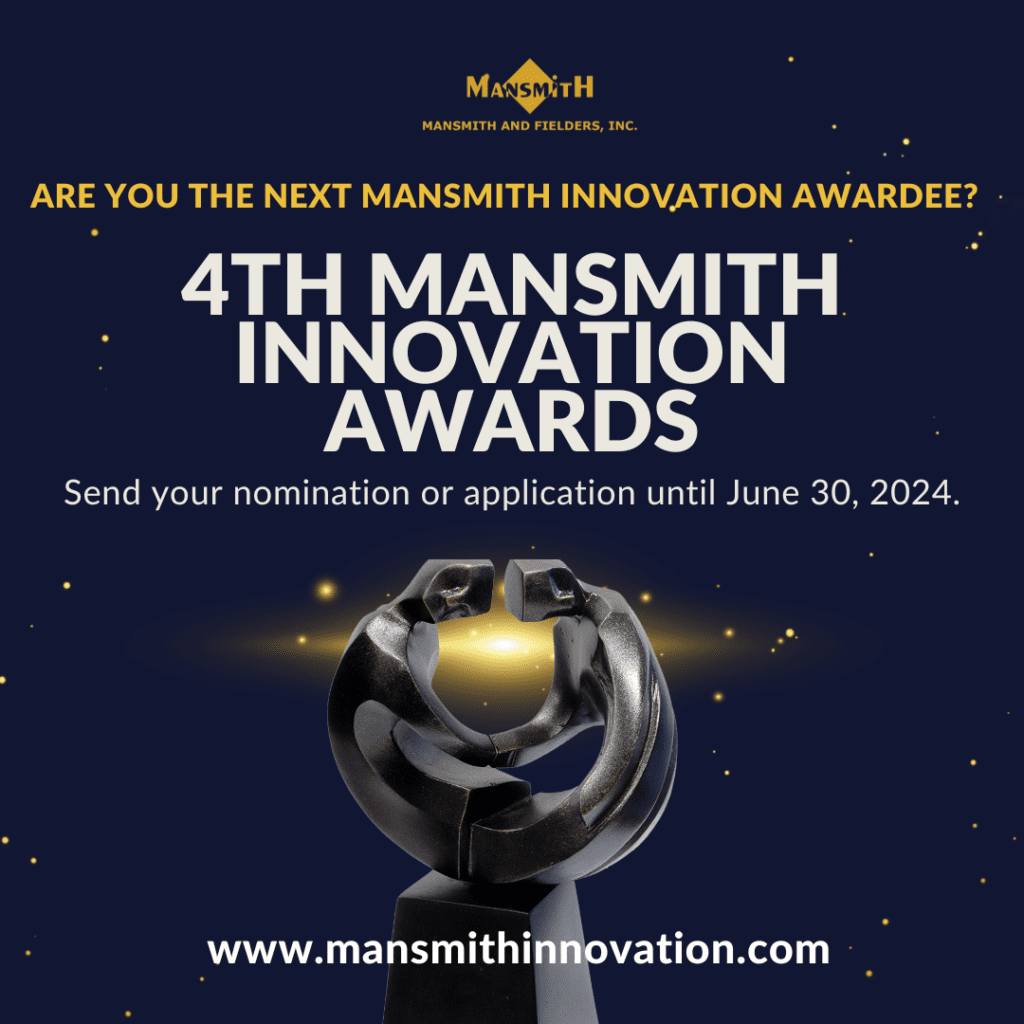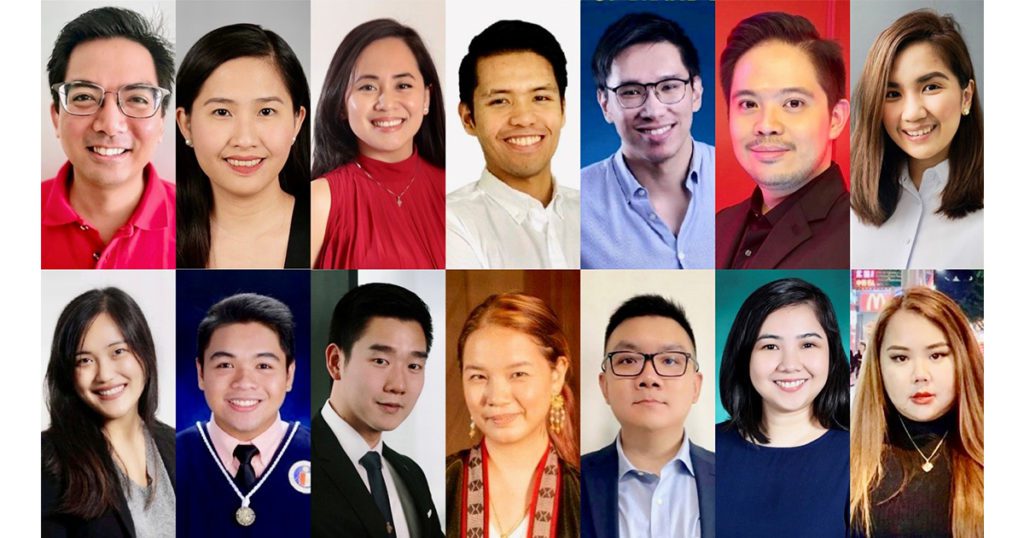
Taxumo is an award-winning GovTech startup that makes tax compliance easy and painless for small business owners and professionals. It was also the first startup to be part of the Board of Investment’s Investment Priority Plan.
EJ Arboleda is the Co-Founder and CEO of Taxumo and the Enterprise Innovator Awardee for Technology Innovation for the 2nd Mansmith Innovation Awards. In this interview, he shares how he jump-started his process in developing Taxumo and the hurdles he had to overcome trying to address a personal pain point.
Q1: Taxumo was created from a personal pain point you and your wife experienced. How did you jump from experiencing that pain point to thinking of ways to address it by pioneering a new idea?
A1: I think Filipinos have been conditioned to just accept things as they are — particularly when it comes to problems. When we encounter challenges, we just bear down and get through them, accepting them as the way things are, the way things have always been done. We find pride in this and call ourselves resilient. People going against this mindset receive disparaging comments like “ikaw na” or “eh di ikaw maging [whatever].” This should NOT be the case though. If there’s a better way of doing things, we should demand that, we should expect that. If it doesn’t exist, then we create it ourselves. That is where we came from in creating Taxumo — there just HAS to be something better than this. There wasn’t, so we created it.
Q2: As an entrepreneur just starting out, lack of resources is often a common problem. When developing Taxumo, how did you test its feasibility before releasing it publicly and what steps did you take to be able to find the resources to test it?
A2: That is very true, we did not have the resources to get started. We even had an active toddler at home who was just about to start school! So funding-wise, we really didn’t have a lot to spend. So before we spent anything on Taxumo, we really had to make sure that the risks were mitigated and that we weren’t jumping in blind into a big investment. So, much like our toddler, we took baby steps:
First, we checked whether the problem we were experiencing was indeed a problem for many people (not just for us and our circle of friends). We spoke to I would say almost 100 freelancers, doctors, and small business owners. We even offered free taxation seminars with the condition that the attendees allow us to interview them at the end. Through this, we were able to confirm that the problem is quite common – not just something that exists in our circle, even, but even outside of it. In startup parlance, we validated problem-market fit.
Next we started working on the solution to the problem, we looked for problem-product fit. We went through dozens of iterations with each iteration having a very clear goal of what we wanted to learn. In fact, the very first iteration was a Powerpoint presentation: our intention was to learn whether taxpayers would be interested in using a service where they still had to provide some data themselves. The next big version was a website that looked automated but was actually manually worked on by us founders at the backend: with this, we validated that people would be willing to trust an online web application versus a human service provider. All of these were versions that we ourselves created and ran. By the time we reached a point when we needed to make the actual system, we were already fairly sure that the product will be something that people will pay for. Investing our own cash wasn’t that big of a risk anymore since we had a much clearer idea of what we were getting into.
Q3: Staying on the topic of trying to figure out ways to penetrate your chosen market, what kind of mindset did you have to adopt to discern whether you should keep going with a specific idea or not? When did you know that Taxumo was something you should pursue?
A3: You’ve probably heard this many times before but “do not fall in love with our product” was something we adhered to quite closely. Instead, what we chose to fall in love with was the problem. We are sure the problem exists — tax compliance in the Philippines IS a pain point — the trick was figuring out the right form the solution would take. So the question wasn’t so much about “should we pursue Taxumo or not” but rather the question is “what should Taxumo be so that it solves the problem.”
Q4: You have prior experience in technology. How has this affected your process in providing a solution for your personal pain point and in turn, the development of Taxumo? Do you believe that entrepreneurs can address a pain point by suggesting solutions not related to any of their previous experiences?
A4: Initially, my background in technology allowed me to figure out what parts of the whole tax compliance process we can actually automate. Eventually, this same background gave us an edge because I was able to make sure that the features we eventually created were not only functional, but were also maintainable. Because of this, we were able to scale Taxumo while making sure quality was consistently delivered. Having said that, I did not have the relationships we needed to get integrations in place and I did not have the actual legal knowledge required to ensure the product was working correctly — this is where partners & co-founders come in. So yes, even if an entrepreneur doesn’t have expertise per se in a given industry, I believe they can still be successful as long as they are honest about their shortcomings and have plans to address those shortcomings.
Q5: Lastly, do you have any parting advice for entrepreneurs who have ideas or pain points, but have no prior experience or immediate resources?
A5: Business is usually portrayed as a big leap across some chasm into the unknown. That was not our experience, however. Sticking to the analogy of a chasm, what I and my co-founders did instead was to build a bridge brick by brick, learning slowly, uncovering what lay behind the fog. By the time we had to take the leap, we already saw the other side clearly. Having resources will definitely help — it allows you to jump across the chasm more times even with less clarity. Not having resources means you need to be more disciplined, it’s harder but definitely possible.
*****
Josiah Go is chair and chief innovation strategist of Mansmith and Fielders Inc.
*****
The search for the 4th Mansmith Innovation Awards is ongoing. Send your application/nomination here: https://bit.ly/4thMansmithInnovationAwards.

See more articles on Innovation.

